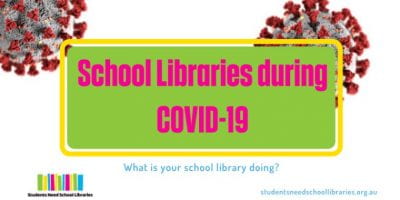We were delighted to welcome so many of you to our very first SLAV Virtual Book Club! Thank you for joining us and for your participation.
As promised we are sharing the list of titles discussed below. This first list is quite eclectic, owing to the fact that there was no theme for this particular session, we simply invited you all to share what you had been reading over the past few months.
Moving forward, these meetings will be themed, resulting in lists that we hope will be useful for your classrooms and libraries. We also hope to align titles to curriculum areas, where possible, and specify if they are suitable for primary or secondary students.
We have linked each title through to the Readings Website. Please keep in mind that if an item is out of stock, it may take some time to become available again if it is coming from overseas.
For now though, we present the first list and hope you enjoy!
May 21 SLAV Book Club Suggestions
Suitable for Older Secondary Students
Hamnet by Maggie O’Farrell
The Dictionary of Lost Words by Pip Williams
Station Eleven by Emily St John Mandel
A Single Thread by Tracey Chevalier
Ruin, Scholar and Good Turn – all by Dervla Mc Tiernan
The Erratics by Vicki Laveau Harvie
The Testaments by Margaret Attwood
The Sin Eater by Megan Campisi
The Binding by Bridget Collins
Bruny by Heather Rose
Deep Water by Sarah Epstein
Catching Teller Crow by Ambelin Kwaymullina & Ezekiel Kwaymullina
The Glass Castle by Jeanette Walls
The Starless Sea by Erin Morgenstern
Olive Kitteridge and Olive, Again by Elizabeth Strout
Eleanor Oliphant is Completely Fine by Gail Honeyman
The End of the World is Bigger Than Love By Davina Bell
Promise Me Happy by Robert Newton
The Ballad of Songbirds and Snakes by Suzanne Collins
Small Spaces by Sarah Epstein
Please Don’t Hug Me by Kay Kerr
Non Fiction
Bewildered by Laura Waters
Made in Scotland by Billy Connelly
Wordslut: A Feminist Guide to taking back the English language by Amanda Montell
The Convent by Stuart Kells
Educated by Tara Westover
Suitable for Upper Primary and Beyond
The Year the Maps Changed by Danielle Binks
My Family and Other Animals by Gerald Durrell
Beyond Belief by Dee White
The Art of Taxidermy by Sharon Kernot




